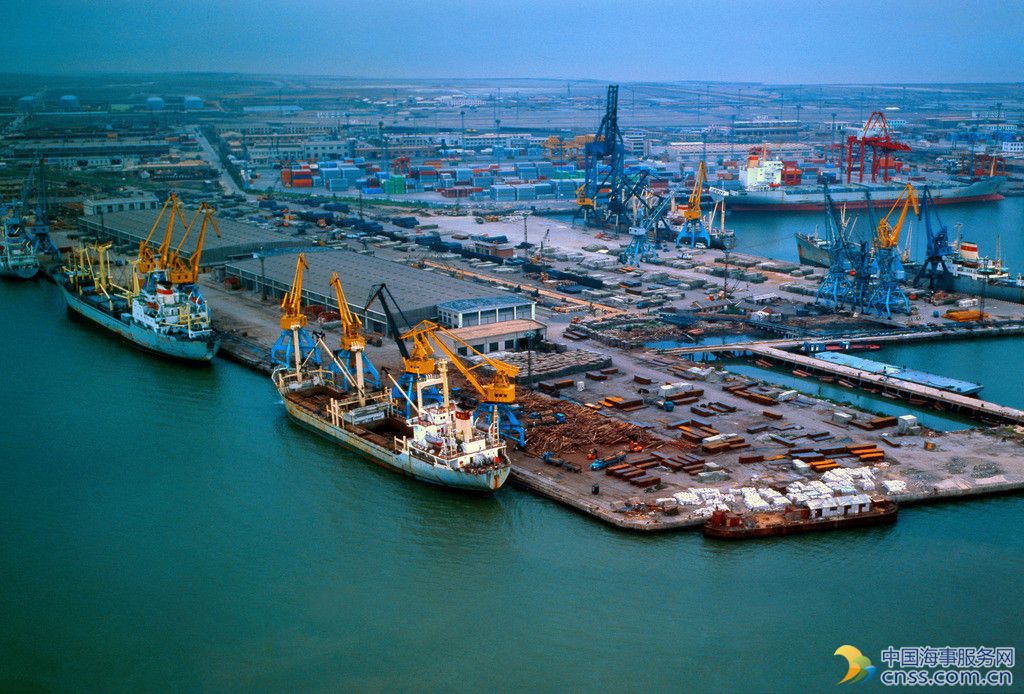FX scarcity: Cargo dropped 50% in first half 2016

Checks at the Ports and Cargo Handling Services Ltd’s terminal at the Tin Can Island Port complex in Lagos revealed that container inflow at the six seaports has dropped by 10 per cent, while general cargo volume dropped by 50 per cent in the first half of the year, as compared to the figures in the corresponding period in 2015.
As a result, terminal operators at the country’s seaports are experiencing low financial returns a Daily Trust investigation has revealed.
The investigation also revealed that the problem of the operators, also known as concessionaires, is compounded by the inability of most of them to procure dollar to meet their hard currency obligations as Nigeria’s local currency, the naira, has depreciated by about 90 per cent in the last 18 months.
The story is the same for a good number of the operators across the six major seaports in the country.
John Jenkins, Managing Director of the Sifax Group, owners of Ports and Cargo Handling Services, attributed the drop in cargo volume to the scarcity of foreign exchange.
“The inability of the government to generate the required foreign exchange to oil the wheel of the economy is posing a great challenge,” Jenkins said.
The inability of importers themselves to source their foreign currency needs to import cargo, he added, was also a big challenge.
Daily Trust gathered that two other terminal operators, PTML and Five Star, have lost more than 70 per cent of their RORO vessel and cargo traffic due to dollar scarcity and consequences of the National Automotive Policy the Goodluck Jonathan administration introduced in 2014.
The policy, which raised the tariff on imported vehicles from 20 to 70 per cent, was said to have led to the diversion of more than 50 per cent of Nigeria-bound vehicle imports to the Port of Cotonou, Benin Republic, from where they are smuggled into Nigeria.
Our correspondent who, on Tuesday, visited Terminals A and B operated by Apapa Bulk Terminals Limited (ABTL) owned by Flour Mills Nigeria Ltd, and terminals C and D operated by ENL Consortium, observed that most of the berths were empty and the workers were seen idling.
The terminals, which mostly handle bulk and general cargoes, have reportedly lost about half of their vessel and cargo traffic to the prevailing economic hardship in the country.
The Executive Vice Chairman/CEO of ENL Consortium, Princess Vicky Haastrup, confirmed that cargoes were fast disappearing from the once boisterous Lagos port.
“The number of ships that I have handled from January till today is actually the number of ships I normally handle in a month,” Haastrup, Terminal operators in the ports outside Lagos have not fared any better. For instance, all the three major operators at the Calabar Port put their capacity utilisation so far this year at a meagre 25 per cent.
The general manager of Ecomarine Terminals, Kingsley Iheanacho, said the terminal no longer earned revenue from yard operations as vessels and clearing agents were scarce at the port.
The terminal, according to him, was barely managing to remain afloat as it operated “skeletal services”.
“Presently, we are having 25 per cent utilisation and that is what the Calabar Port is all about,” he told the Managing Director of the Nigerian Ports Authority (NPA), Hadiza Usman, who visited the facility for the first time last week.
The Calabar Port manager, Oluseyi Ogundele, confirmed the poor volume of cargo at the port.
Other terminals such as Port and Terminal Operators Limited (PTOL) and BUA at the Rivers Port Complex in Port Harcourt, and Intels at Onne and Warri ports have also all been struggling in the face of declining revenue.
Source: Daily Trust
HEADLINES
- Do shipping markets want Biden or Trump for the win?
- All 18 crew safe after fire on Japanese-owned tanker off Singapore
- Singapore launching $44m co-investment initiative for maritime tech start-ups
- Cosco debuts Global Shipping Industry Chain Cooperation Initiative
- US warns of more shipping sanctions
- China continues seaport consolidation as Dalian offer goes unconditional